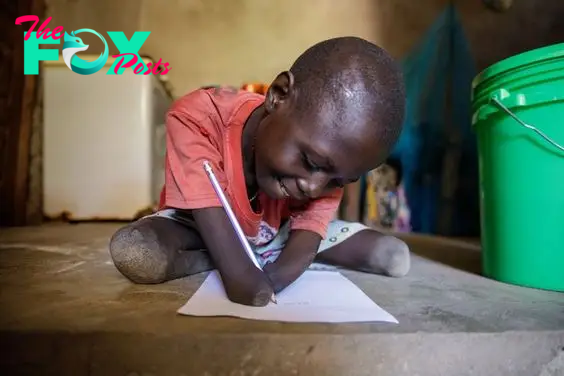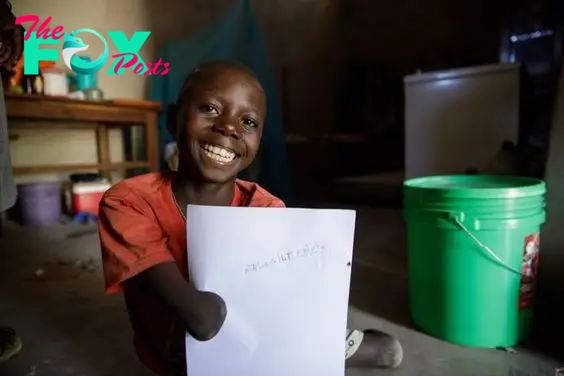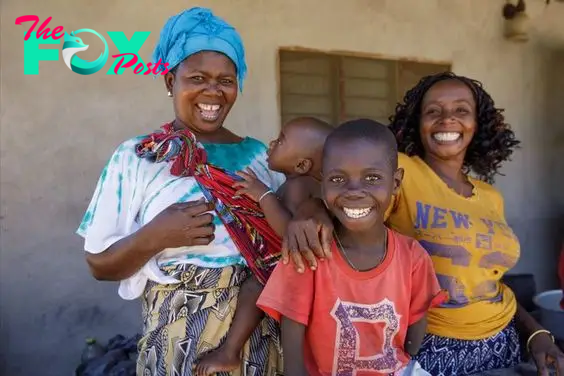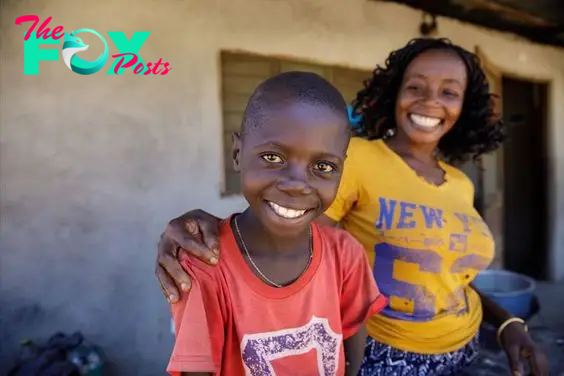Lifestyle
SY The commitment of a disabled African youth who diligently practices writing every day despite lacking hands is truly poignant.
In Africa, providing disabled children with access to education is a ŃĐłáŽŃŃĐ°É© issue that needs immediate attention and action. Even with continental efforts to enhance educational possibilities, children with disabilities still eĐżŃoáŽĐżteĐł major oĐŹŃtĐ°ŃÉ©eŃ in their quest for a high-quality education, which exacerbates exclusion and inequality.

One of the primary challenges is the lack of inclusive Educational policies and infrastructure to accommodate the diverse needs of children with disabilities. Many schools lack accessible facilities, trained teachers, and specialized resources to support students with disabilities effectively. This results in exclusion from mainstream Education and limited access to specialized services and support systems.
Additionally, societal stigma and discrimination against children with disabilities further compound the barriers to Education. Negative attitudes and misconceptions about disability often lead to social exclusion, bullying, and marginalization, hindering the participation and integration of children with disabilities in Educational settings.

Limited financial resources and funding constraints also pose significant challenges to improving access to Education for children with disabilities in Africa. Many families cannot afford the costs associated with specialized Education, assistive devices, and transportation to accessible schools, further exacerbating disparities in access and opportunities.
To address these challenges, concerted efforts are needed to promote inclusive Education policies, strengthen infrastructure, and enhance teacher training and support. Investing in accessible facilities, assistive technologies, and inclusive teaching practices can help create more supportive and inclusive learning environments for children with disabilities.

Furthermore, raising awareness, challenging stereotypes, and fostering social inclusion are essential to combatting stigma and discrimination against children with disabilities. By promoting understanding, acceptance, and respect for diversity, communities can create more inclusive societies where all children have equal opportunities to learn and thrive.

In conclusion, ensuring access to education for children with disabilities in Africa requires a comprehensive approach that addresses systemic barriers, promotes inclusive policies, and fosters social inclusion. By prioritizing the rights and needs of children with disabilities, governments, policymakers, educators, and communities can work together to build more inclusive and equitable education systems that empower all children to reach their full potential.
-

 Lifestyle58m ago
Lifestyle58m agoThe price of freedom | The Express Tribune
-

 Lifestyle59m ago
Lifestyle59m agoBadshah breaks silence on Hania Aamir relationship rumors | The Express Tribune
-

 Lifestyle4h ago
Lifestyle4h agoBrad Pittâs Daughter Was Shocked When She Shared: When I Was 17, My Dad Didnât Protect Me And Finally Saw Diddy Pushing Me And Forcing Me ToâŠLinh
-

 Lifestyle4h ago
Lifestyle4h agoKim Kardashian Reacts Strongly After Diddy Leaks Controversial Photos.Linh
-

 Lifestyle6h ago
Lifestyle6h agoAbhishek Bachchan talks about fatherhood after missing daughter Aaradhya's birthday | The Express Tribune
-

 Lifestyle6h ago
Lifestyle6h agoMohini Dey responds to rumours linking her to AR Rahmanâs divorce | The Express Tribune
-

 Lifestyle9h ago
Lifestyle9h agoLiam Paynes funeral: One Direction reunites in tragic scenes, new and old lovers bid him farewell in heartbreak see more.cau
-

 Lifestyle9h ago
Lifestyle9h agoâDavid Beckham Sparks Controversy Explaining Why He Kisses His 11-Year-Old Daughter on the Lipsâ.ngocchau























